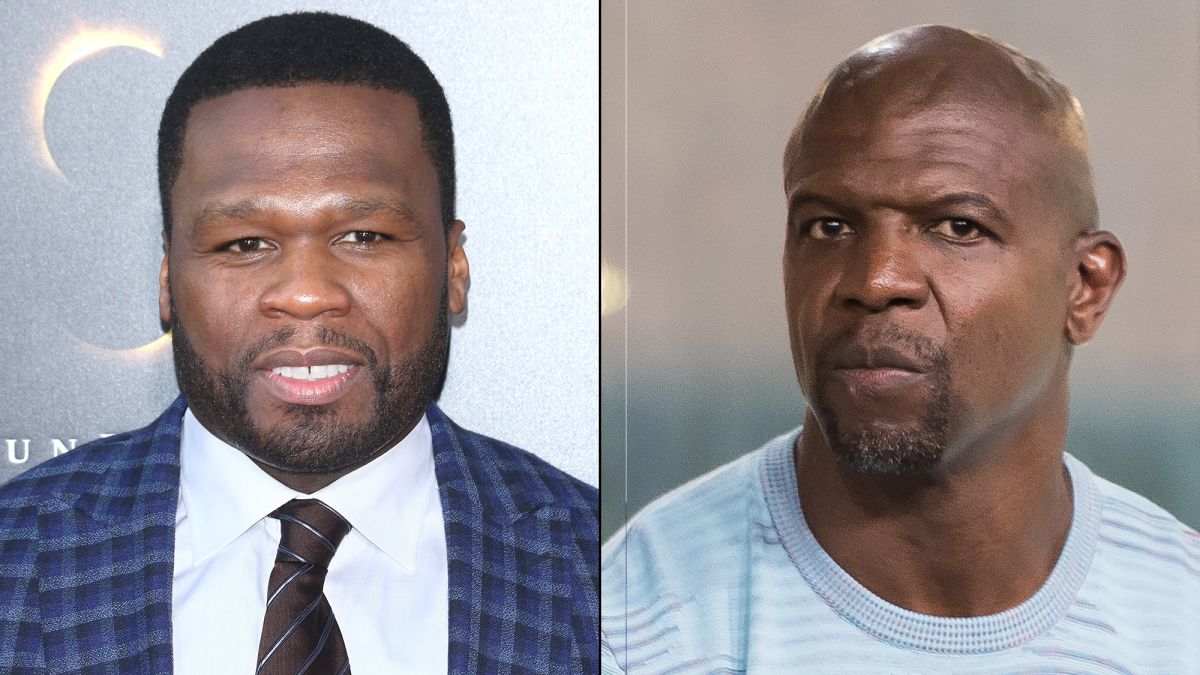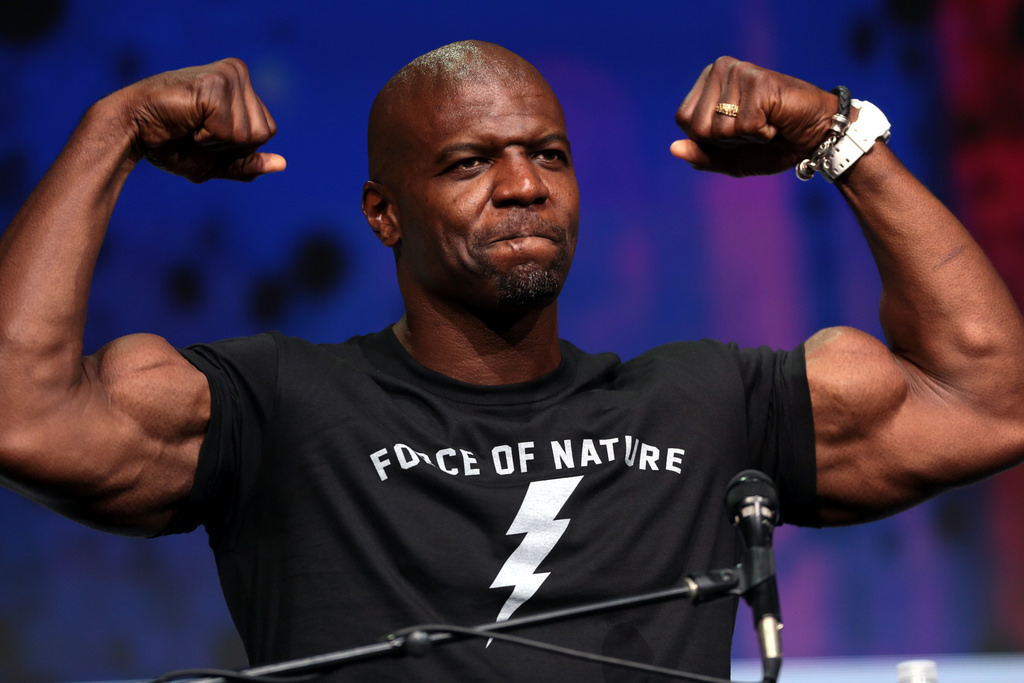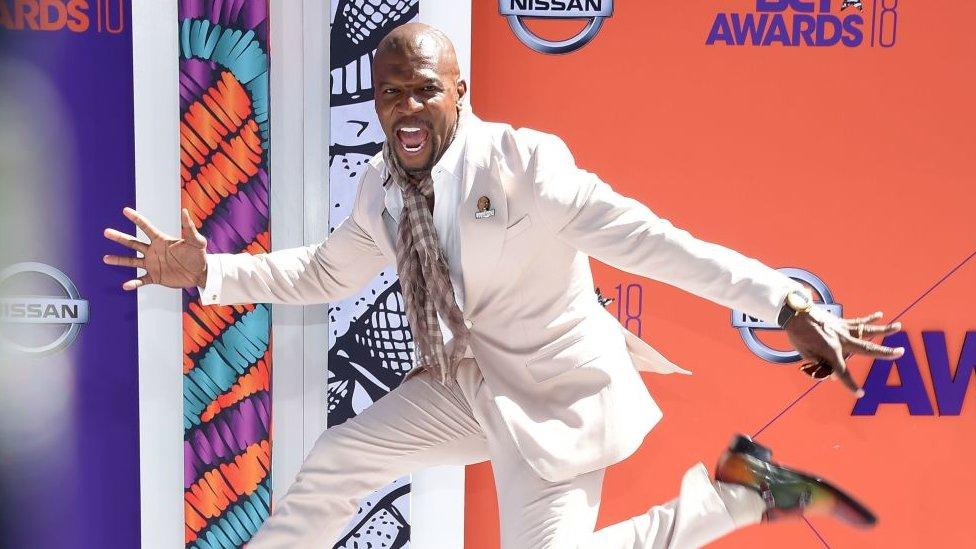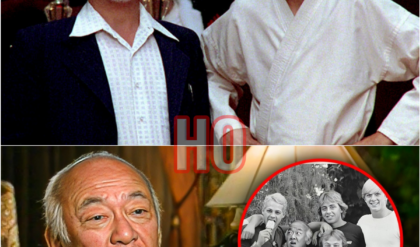In 2017, one of Hollywood’s most beloved stars, Terry Crews, tried to warn the world about the predatory nature of powerful executives in the entertainment industry. Not only did he bravely share his deeply humiliating personal experience, but he also sought justice through the legal system—only for his case to be dismissed, seemingly due to corruption within the LAPD. As if that wasn’t bad enough, some self-proclaimed “macho men” in the industry mocked Terry for sharing his story, further discouraging other victims from speaking out.

Terry Crews is often seen as a larger-than-life figure, a “gentle giant” with a huge physique, famous for his role as a lovable teddy bear. However, his career was far from easy, and beneath the tough exterior, he suffered from years of pain. Today, we’re diving into the life of Terry Crews, a man who built a façade of strength but, in reality, was living with deep trauma from a violent childhood and struggling to survive in a system that often seeks to exploit the very people who make it successful.
A Violent Childhood and the Roots of His Strength
Terry Crews’ story begins in Flint, Michigan, where he grew up in an abusive home. His father was a violent alcoholic, and his mother, a devoutly religious woman, was often the victim of his father’s abuse. “My earliest memory is my father knocking my mother out,” Terry recalled. Despite his father’s rage, Terry and his siblings were spared physical violence, but they were forced to witness the ongoing abuse.
Divorce was not an option for Terry’s mother due to her religious beliefs, so Terry grew up in a home full of fear and tension. He knew that one day he might have to protect his family, and this fear drove him to become physically strong. “A lot of my desire to be strong was because I knew one day I may have to kill my father,” Terry later revealed. This need to protect himself and his family, combined with his father’s unpredictable violence, pushed him to build the muscular physique that would later become iconic.

An Artist with a Hidden Dream
Despite the violence in his home, Terry’s mother’s strict religious beliefs left little room for entertainment or artistic expression. She forbade Terry from watching television, going to the movies, or listening to secular music, which led him to develop a rich imagination and a love for drawing. He became an artist, creating images based on the stories others would tell him about movies he couldn’t watch. This passion for art was Terry’s first true dream, but it seemed out of reach, especially coming from a city like Flint, where pursuing art was far from practical.
While still in high school, Terry began playing sports, gravitating toward football due to his size and athleticism. At Flint Academy High School, he became the backbone of the team’s defense. However, despite his talent, he didn’t receive any offers to play college football, but he did receive an art scholarship to attend Western Michigan University (WMU). Though Terry still dreamed of being an artist, he gave football another shot, joining the WMU team as a walk-on defensive end. His natural abilities earned him a spot, and he became a standout player, even earning All-American honors by the National Strength and Conditioning Association.
His football career at WMU was promising, but the dream of making it to the NFL was always in the back of his mind. “I told my wife, we’re going to play in the NFL, then we’re going to move to Hollywood and make movies,” he shared. This promise, made during a conversation in a Wendy’s parking lot, was a turning point in his life.

The NFL and the Struggles of a Short-Lived Career
Terry Crews was drafted by the Los Angeles Rams in the 11th round, but his NFL career didn’t pan out as he had hoped. Over the next several years, he played for six different teams, but was constantly getting cut and never secured a big contract. He struggled financially, living paycheck to paycheck, and he often had to turn to his artistic talents to survive. After being cut from a team, he would often return to the locker room and offer to paint portraits of his teammates for $5,000 a piece, which helped him make ends meet.
In fact, Terry even credits his bald look to the financial struggles he faced during his NFL career. “Back in 1991, I had the most beautiful flat-top you could imagine. But when I got cut, I didn’t have money for a haircut, so I shaved it off.”
By 1997, Terry was almost 30 and realized that the NFL was no longer a realistic option. He had played a total of 26 games over seven years, recording five tackles. With no direction and little money, Terry’s life seemed at a crossroads. But his wife reminded him of the promise he had made: “Let’s go to Hollywood and make movies.”

A Struggle to Make It in Hollywood
With no money and no connections, Terry turned to his former NFL teammate, Ken Harvey, for financial help. “I took about 20 or 30 loans from Ken Harvey,” he confessed. “He’s still my good friend to this day.” But after a year and a half of living off his friend’s generosity, Terry was forced to humble himself and find work wherever he could.
He took a job sweeping factory floors for $8 an hour. “It humbled me,” he said, reflecting on how far he had fallen. “There was a long time when I wouldn’t have done that. But I had to let go of my pride.”
Terry eventually got a job working security outside of Hollywood studios. It was during this time that he found himself on the set of Next Friday (1999), where he was assigned to watch Ice Cube’s car for 12 hours. It wasn’t glamorous, but it was a step into the world he’d dreamed of.
While working security, Terry met a location manager who invited him to visit the set of Training Day (2001), starring Denzel Washington. While visiting, he was offered a small, uncredited role. Terry was so eager to be involved that he volunteered to do whatever was needed. His role in Training Day was brief, but it turned out to be the beginning of his Hollywood career.

The Big Break and Terry’s Rise in Hollywood
After Training Day became a hit, Ice Cube remembered Terry from his time working on Next Friday. Cube contacted Terry and invited him to audition for Friday After Next (2002). Though the film wasn’t a major box office success, the Friday series became a cult classic. Terry’s performance in the movie helped cement his place in Hollywood, and soon, he was known in what he calls “Black Hollywood.”
At this point, Terry had finally found his calling. “I knew I was in my destiny,” he reflected. “I didn’t even care about money anymore. I wanted that feeling again—being part of something that felt right.”
The Struggle for Justice and the Cost of Speaking Out
While Terry’s career in Hollywood took off, his personal life was still marked by trauma. In 2017, he took a huge risk by speaking out about being sexually assaulted by a Hollywood executive. Despite the humiliation and ridicule he faced, including being mocked by industry figures who minimized his experience, Terry remained committed to seeking justice. His case was ultimately thrown out, and he publicly accused the LAPD of being paid off to dismiss his claims.
But the struggle for justice was only one of many battles Terry fought throughout his life. The same system that helped elevate him also tried to break him down. Yet, despite it all, Terry Crews never gave up on his dream of being an artist, and he continues to speak out for those who feel silenced by the system.
Terry Crews’ story is a testament to resilience, strength, and the power of standing up for what’s right—even when it seems like the odds are stacked against you. He is a true example of someone who overcame unimaginable struggles to find his place in Hollywood, but also someone who has never been afraid to stand up for others, no matter the cost.





